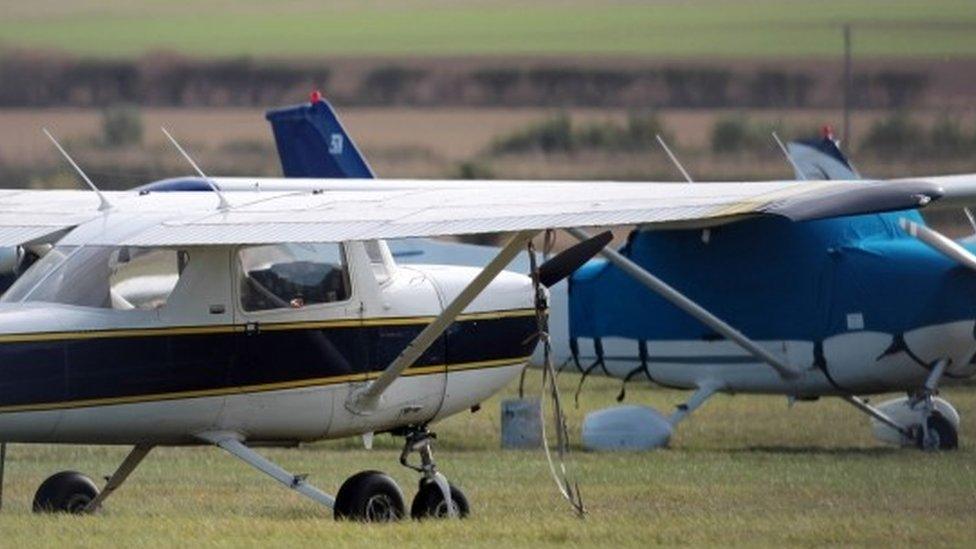Call to save military airfields from closure
- Published

Fifteen military airfields have been earmarked for closure over the next six years with the potential loss of thousands of jobs, MPs have warned.
The all-party group on general aviation says they are a vital national asset which once closed will never be replaced.
Most of the airfields, which are used by private pilots and flight training firms, will be sold off for housing.
The government said the sites will be used to help the local economy.
The all-party group has written to Defence Secretary Gavin Williamson, urging him to consider keeping them open for private planes and allowing them to be brought back into military use if needed.
The group's chairman, Conservative MP Grant Shapps, said general aviation - the name given to all non-commercial flying - was worth 拢3bn a year to the UK economy,
"At a time when the UK and our allies are facing significant global threats and uncertainties," said Mr Shapps, MPs were "deeply concerned" to see the Ministry of Defence disposing of military aerodromes across the country.
He claimed air traffic control and flight training firms were moving their operations abroad due to a lack of airfields in the UK - and the planning system meant it was effectively impossible to build new ones.
Mr Shapps, a former housing minister, holds a pilot's licence - he said he recognised the need to build more new homes but the airfields were "large sites" that could retain runways and outbuildings.
The airfields earmarked for closure are:
Abingdon, Oxfordshire
Alconbury, Cambridgeshire
Arbroath, Angus
Brawdy, Pembrokeshire
Chivenor, Devon
Colerne, Wiltshire
Dishforth, North Yorkshire
Halton, Buckinghamshire
Henlow, Bedfordshire
Mildenhall, Suffolk
Molesworth, Cambridgeshire
North Luffenham, Rutland
Wethersfield, Essex
Woodbridge, Suffolk
Wyton, Cambridgeshire
A Ministry of Defence spokesman said around 拢300m is planned to be spent on key RAF sites across the UK.
He said that a defence minister will "be pleased to meet" with the parliamentary group on aviation.
The spokesman added: "Where airfields are no longer required, we will work closely with potential buyers and the local council to make sure that the sites' future use best meets the needs of the local economy, including providing thousands of much-needed new housing or their potential for use as civilian airfields."
- Published10 July 2018
- Published28 June 2015
- Published8 October 2012